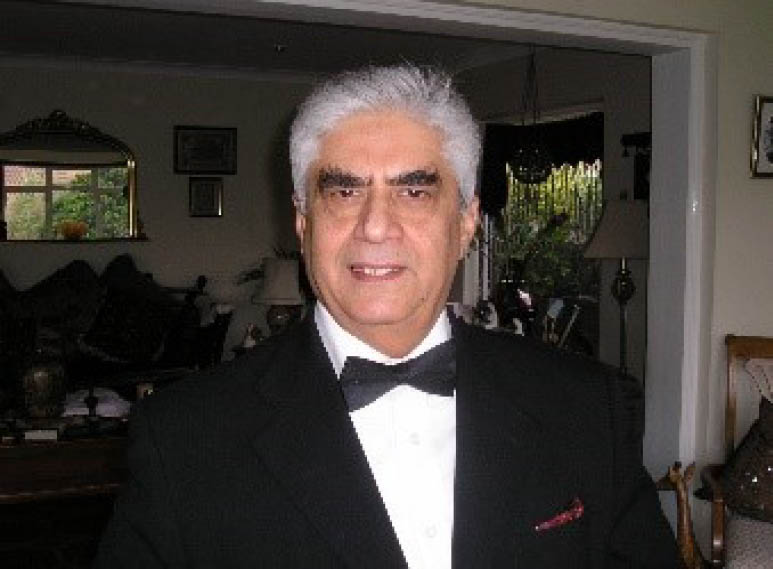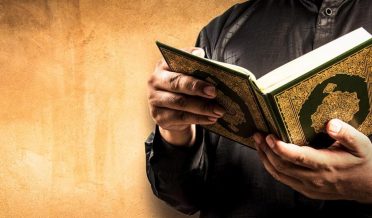
Dr Qadir Bakhsh, MBE
After creating human beings Allah Almighty did two favours, among many many others, to ensure that His (swt) creation (human beings) is fully well-versed, knowledgeable, well-prepared, enabled and warned about the purpose (51:56) of their life on earth, and how to accomplish that, lest they transgressed. Therefore He (swt) sent Messengers to every nation with the mission to explain and enact (by practically living) the purpose of life on earth (al-Quran, 23:44), ordained by Allah (swt). Allah Almighty says:
Verily! We have sent you with the truth, a bearer of glad tidings, and a warner. And there never was a nation but a warner had passed among them (al-Quran, 35:24).
Allah (swt) has named some of those Messengers (peace be upon all of them) and told us their stories, but not of many others (al-Quran, 4:163-164).
The second related favour was to reveal His (swt) scriptures and guidance through wahey (revelations) or other means to the Messengers e.g. Torah, Injeel, Zaboor (old and new testaments) and finally the Qur’an, revealed to Prophet Muhammad (saw).
Having facilitated thus, Allah (swt) has repeatedly reminded mankind about the accountability of their deeds (good and bad) on the day of judgement (al-Quran, 3:30) or:
We shall question those (people) to whom It (the book – the message) was sent and, We shall question the messengers (al-Quran, 7:6).
Thus Allah (swt) has also assured that:
We never destroyed any town or community without first sending them warning and guidance (al-Quran 26:208), or
Nor do We ever punish until We have sent a messenger (al-Quran 17:15).
The Messengers on the other hand also reaffirmed that:
(They said), ‘Our Lord knows that we have been sent to you. Our duty is only to deliver the message to you (al-Quran 36: 16-17).
Concerning the efficacy of the Messengers and their role, Allah (swt) has explained it clearly that there will not be any excuse after the Messengers have conveyed the message.
(We sent) Messengers as bringers of good tidings and warners so that mankind will have no argument against Allah after (coming of) Messengers, Allah is Mighty and Wise (al-Quran 4:165).
Therefore Allah (swt) directs: always be on your guard and pay attention:
Obey Allah, obey the Messenger, and always be on your guard: if you pay no heed, bear in mind that the sole duty of Our Messenger is to deliver the message clearly (al-Quran 5:92). The rest is solely our responsibility.
Allah Almighty has reiterated many times in a various context that eventually we will return to the Creator:
Indeed, we belong to Allah and indeed we will return to Him (al-Quran 2:156).
To ensure the success and appropriateness of the role of Messengers, with relation to their languages, cultures and familiarity, Allah (swt) ‘showed great kindness’ and appointed Messengers from among themselves ‘to teach them Book and Wisdom’ ( al-Quran 3:164).
In the case of Prophet Muhammad Allah (swt) says:
A Messenger has come to you from among yourselves. Your suffering is distressing to him. He is deeply concerned about you and is gentle and merciful to the believers (al-Quran 9:128).
Allah Almighty referring to Prophet Muhammad (saw) says:
We have sent you (O’ Muhammad) as nothing but mercy to people of the whole world (al-Quran 21:107).
This means that Prophet Muhammad (saw) was not for a specific nation or a period but compared with previous Messengers, he (saw) was a messenger and mercy for the whole world and according to Quran, Muhammad (saw) was the last Prophet sent to mankind for the whole world and his (saw) message was the last complete divine message and the propherhood has ceased to continue. Allah (swt) confirms that: ….but he is the Messenger of Allah and the last of the Prophets. And Allah is Ever All-Aware of everything (al-Quran 33:40).
In the backdrop of this confirmation, Allah (swt) has also promised to (protect the message (the Qur’an).
We have sent down the Reminder, and We will preserve it (al-Quran 15: 9).
Therefore, there is no need for any more Prophets as long as the message, teaching and guidance remain safe, intact, preserved and protected, and there are divine directives in place to continue dissemination of the message of Allah (swt) and follow the seerat (life of Muhammad – saw) as perfect Role Model.
a) Primary Itteba (Emulation) – Inviting to Allah (swt)
In the case of Islam, it is understood that it is the same religion that began with Adam (AS) and revealed to successive Messengers (peace be upon all of them ) until it was perfected and completed and called ‘Islam’ as such. Allah (swt) says in the Quran:
This day, I have perfected your religion for you, completed My Favour upon you, and have chosen for you Islam as your religion (al-Quran 5:3).
The religion ‘ISLAM` (submission and obedience to Allah covers all the needs of mankind at different times and forever, therefore Allah (swt) has cautioned that:
Truly the religion with Allah is Islam (al-Quran 3:19),
And whoever seeks a religion other than Islam will never be accepted by Him and in the hereafter, he will be one of the losers (al-Quran 3:85).
b) Obligations and responsibilities of the followers to invite to Allah In this vein Prophet Muhammad (saw) has been asked to say to the followers about his (saw) way of inviting people to Allah’s (swt), implying that after Prophet Muhammad (saw) now it is the responsibility of every Muslim and incumbent upon them to call people to Allah (swt).
(O Prophet), Say that is my way: I and all who follow me call (people) to God based on clear insight. May God be exalted in His glory! I am not one of those who associate others with Him (al-Quran 12:108).
Say, ‘If you love Allah, then follow me; Allah will love you and forgive you your sins, and Allah is all-forgiving, all-merciful (al-Quran 2:31).
Prophet Muhammad (saw) also reiterated:
Adhere to my Sunnah and the Sunnah of the Rightly Guided Caliphs, cleave to it with your teeth (Abu Dawood 4607)
Allah (swt) also commands believers directly several times in the Qur’an to take on this very task, for example:
And let there be [arising] from you a nation inviting to [all that is] good, enjoining what is right and forbidding what is wrong, and those will be successful (al-Quran3:104).
With this regard, Allah Almighty has referred to His favour in Surah al Rahman
The Most Merciful, Taught the Qur’an, Created man,[And] taught him eloquence (to communicate) (al-Quran 55:1-4).
Inviting to the path of Allah (swt) is the ultimate emulation (itteba) and the noblest use of the ‘bounty of communication’, bestowed by Allah (swt): inviting to Allah (swt) certainly is the best speech: Who is better in speech than the one who invites to God (al-Quran 41:33), Allah (swt) pronounces.
In so far as emulation (Itteba) is concerned, we believe that the first and foremost act, which Prophet Muhammad (saw) was appointed to perform was to invite people to Allah (swt), as was the responsibility of all the earlier Messengers.







